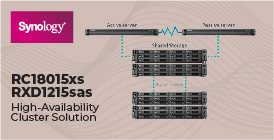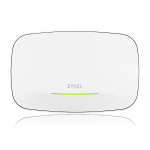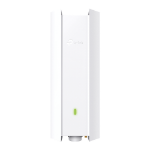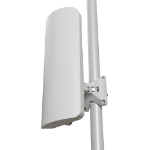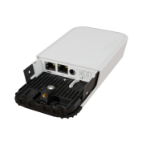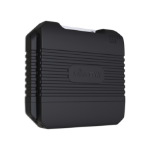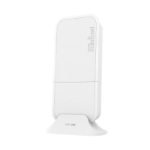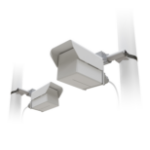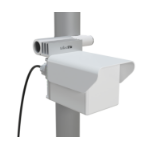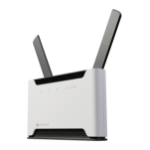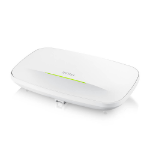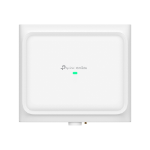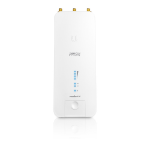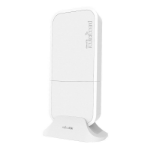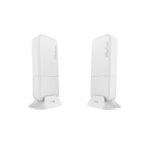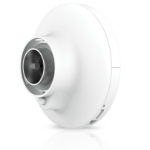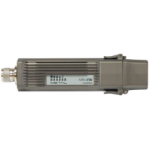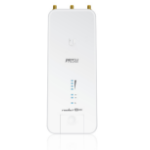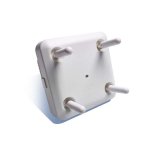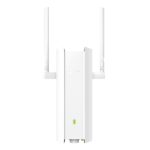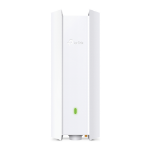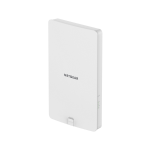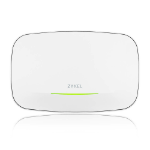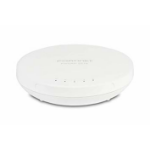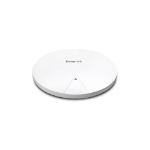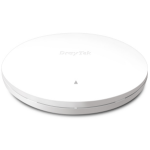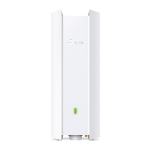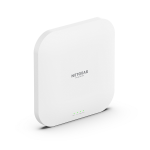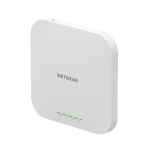Featuring an integrated 24 dBi dish antenna, the LTU Pro is a 5 GHz subscriber station that functions as a CPE (Customer Premises Equipment) in a Point‑to‑MultiPoint (PtMP) environment with the LTU Rocket® as the basestation.
Proprietary LTU Technology
Based on Ubiquiti’s LTU technology, the LTU Pro is not impeded by the limitations of standard 802.11 Wi‑Fi technology. Its custom LTU silicon and radio architecture provide up to 600+ Mbps of real TCP/IP throughput and modulation rates of up to 4096QAM2.
CPE Modes
The LTU Pro supports both bridged and built‑in hardware NAT router modes to suit your specific deployment.
Robust Pole Mount Design
The LTU Pro is designed for quick yet reliable mounting on a pole. It features a built‑in mechanical tilt; the mounting bracket allows convenient adjustments to the elevation with a range of ± 15°.
Channel Width Flexibility
Channel width flexibility allows independent TX and RX channel frequency configurations anywhere within the radio band to avoid local interference.
Auto Power Adjustments
By default, the Auto Output Power option allows the LTU Pro to set the output power (EIRP) to the appropriate level
Signal Control
The LTU Pro's TX output power is controlled by the AP's target TX output power. A PtMP network can manage signal levels to enhance network stability and achieve optimal wireless performance with the highest possible modulation.
Convenient Configuration
To manage the LTU Pro, you have two options: the LTU Configuration Interface and Ubiquiti Network Management System (UNMS™). Either option lets you manually configure the LTU Pro.Within the LTU Configuration Interface, you can manually configure the LTU Pro or manage it from the AP side using the Find My AP feature. The LTU Pro will automatically scan for APs using the same channel bandwidth. Select the appropriate AP and then use it to configure the LTU Pro.
LTU Configuration Interface
PtMP Dashboard
The Dashboard offers map and Fresnel views* so you can visualize the network. The map view shows your PtMP links overlaid on a geographic map, while the Fresnel view shows the link calculated for your selected CPE, including line of sight, first Fresnel zone, and 60% clearance zone.
Real-Time Spectral Analysisair
View® spectral analysis runs on a dedicated and independent receiver, which has excellent EVM (Error Vector Magnitude) performance.
The receiver can also perform other tasks, such as a search for channel occupancy, DFS detection, and automatic channel/frequency assignment. Calibration (signal level measurement accuracy) and resolution bandwidth options are enhanced. Spectral zoom (user‑defined scan limits) is also available







